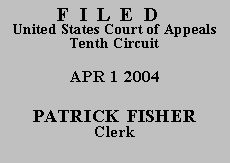

| FRANCIS T. DEUTSCH, |
|
| v. | |
| E.J. GALLEGOS, Warden, F.P.C. Florence, |
|
I. BACKGROUND
On September 9, 2003, Mr. Deutsch submitted to the district court a pro se "Application for a Writ of Habeas Corpus Pursuant to 28 U.S.C. § 2241." However, the district court determined that Mr. Deustch was asserting civil rights claims rather than habeas corpus claims, by alleging that he was denied his right to free exercise of religion in violation of the First and Fourteenth Amendment. Rec. doc. 2, at 2 (Dist. Ct. Order, filed Sept. 18, 2003). Therefore, the district court liberally construed Mr. Deutsch's suit as asserting civil rights claims pursuant to Bivens v. Six Unknown Named Agents of Fed. Bureau of Narcotics, 403 U.S. 388 (1971), and directed him to file a "Prisoner Complaint" form. Id.
In response to the district court's order, Mr. Deustch filed a document on October 15, 2003, titled "Applicant's Motion for Preliminary Injunction, Withdrawal of Civil Action Without Prejudice, and Adequate Time and Opportunity to Cure Any Deficiencies." Rec. doc. 4, at 1. Mr. Deutsch's requests were contradictory. He first conceded that his action was more appropriately filed as a Bivens action, which must be preceded by total exhaustion of administrative remedies. He then admitted that he had not yet exhausted the administrative appeals process and stated that "he must withdraw his action at the present time." Id. at 3. Then, Mr. Deutsch requested the district court to issue an injunction requiring the Federal Bureau of Prisons to allow him to exercise his religion freely "while [Mr. Deutsch] exhausts administrative remedies and these issues ripen for judicial review in a Bivins [sic] action." Id. at 6.
The district court construed Mr. Deutsch's motion as a Notice of Voluntary Dismissal pursuant to Federal Rule of Civil Procedure 41(a)(1) and ordered that the dismissal was effective as of the motion's date of filing, October 15, 2003. The court dismissed the complaint and the action without prejudice and denied Mr. Deutsch's other requests as moot. Rec. doc. 5, at 2-3 (Dist. Ct. Order, filed Nov. 4, 2003).
On November 12, 2003, Mr. Deutsch filed a "Motion for Reconsideration" asserting that even though his action had been dismissed, he should be able to obtain his desired injunctive relief, citing Jackson v. District of Columbia, 254 F.3d 262 (D.C. Cir. 2001). Rec. doc. 8, at 2 (Motion for Reconsideration, filed Nov. 12, 2003). The district court construed the motion as a motion to alter or amend the judgment pursuant to Federal Rule of Civil Procedure 59(e), and denied it, finding that Mr. Deutsch had misread Jackson and that the court had no authority to grant injunctive relief without a pending related action. Rec. doc. 18, at 3-4 (Dist. Ct. Order, filed Dec. 24, 2003).
Mr. Deutsch now appeals to this Court, asserting that (1) the district court misapplied Jackson and erroneously denied him injunctive relief pending exhaustion of his administrative remedies, (2) he has now exhausted his administrative remedies, and the district court should reinstate his Bivens action and grant him injunctive relief, and (3) the district court erred in "rais[ing] the exhaustion of remedies defense sua sponte," Aplt's Br. at 9.
II. DISCUSSION
"We review a district court's ruling on a Fed. R. Civ. P. 59(e) motion under an abuse of discretion standard." Phelps v. Hamilton, 122 F.3d 1309, 1324 (10th Cir. 1997). "Under the abuse of discretion standard, a trial court's decision will not be disturbed unless the appellate court has a definite and firm conviction that the lower court made a clear error of judgment or exceeded the bounds of permissible choice in the circumstances." Id.
Upon a review of the record, we hold that the district court properly construed Mr. Deutsch's motion filed on October 15, 2003, as a notice of voluntary dismissal. Mr. Deutsch filed this motion before the defendants filed an answer, see Fed. R. Civ. P. 41(a)(1), and he admitted that he had not exhausted his administrative remedies and stated that "he must withdraw his action at the present time." Rec. doc. 4, at 3. Mr. Deutsch does not contest the finding that he voluntarily dismissed his case in order to first exhaust his administrative remedies. See Aplt's Br. at 2, 6.
Under Rule 41(a)(1)(i), a plaintiff has an absolute right to dismiss without prejudice and no action is required on the part of the court. The [filing of a Rule 41(a)(1)(i) notice] itself closes the file. . . . The effect of the filing of a notice of dismissal pursuant to Rule 41(a)(1)(i) is to leave the parties as though no action had been brought. Once the notice of dismissal has been filed, the district court loses jurisdiction over the dismissed claims and may not address the merits of such claims or issue further orders pertaining to them.
Janssen v. Harris, 321 F.3d 998, 1000 (10th Cir. 2003). Therefore, when Mr. Deutsch filed his voluntary dismissal, the district court was rendered powerless to issue his requested injunctive relief. However, a voluntary dismissal constitutes a dismissal without prejudice, see Fed. R. Civ. P. 41(a)(1), and if Mr. Deustch has exhausted his administrative remedies as he claims, he may refile his Bivens action in the district court. See Steele v. Federal Bureau of Prisons, 355 F.3d 1204, 1214 (10th Cir. 2003) (applying the PLRA's exhaustion requirement to Bivens claims); Jackson, 254 F.3d at 270-71 ("Because the prisoners failed to exhaust their administrative remedies, the district court should have dismissed the complaint without prejudice, allowing the prisoners to refile once they have completed the [prison] grievance procedures.").
Because Mr. Deustch had voluntarily dismissed his claims, the district court did not abuse its discretion in denying his Rule 59(e) motion. Because the action has been properly dismissed, we are unable to reach the merits of Mr. Deutsch's issues on appeal. Accordingly, we DISMISS this matter.
Entered for the Court,
Robert H. Henry
Circuit Judge